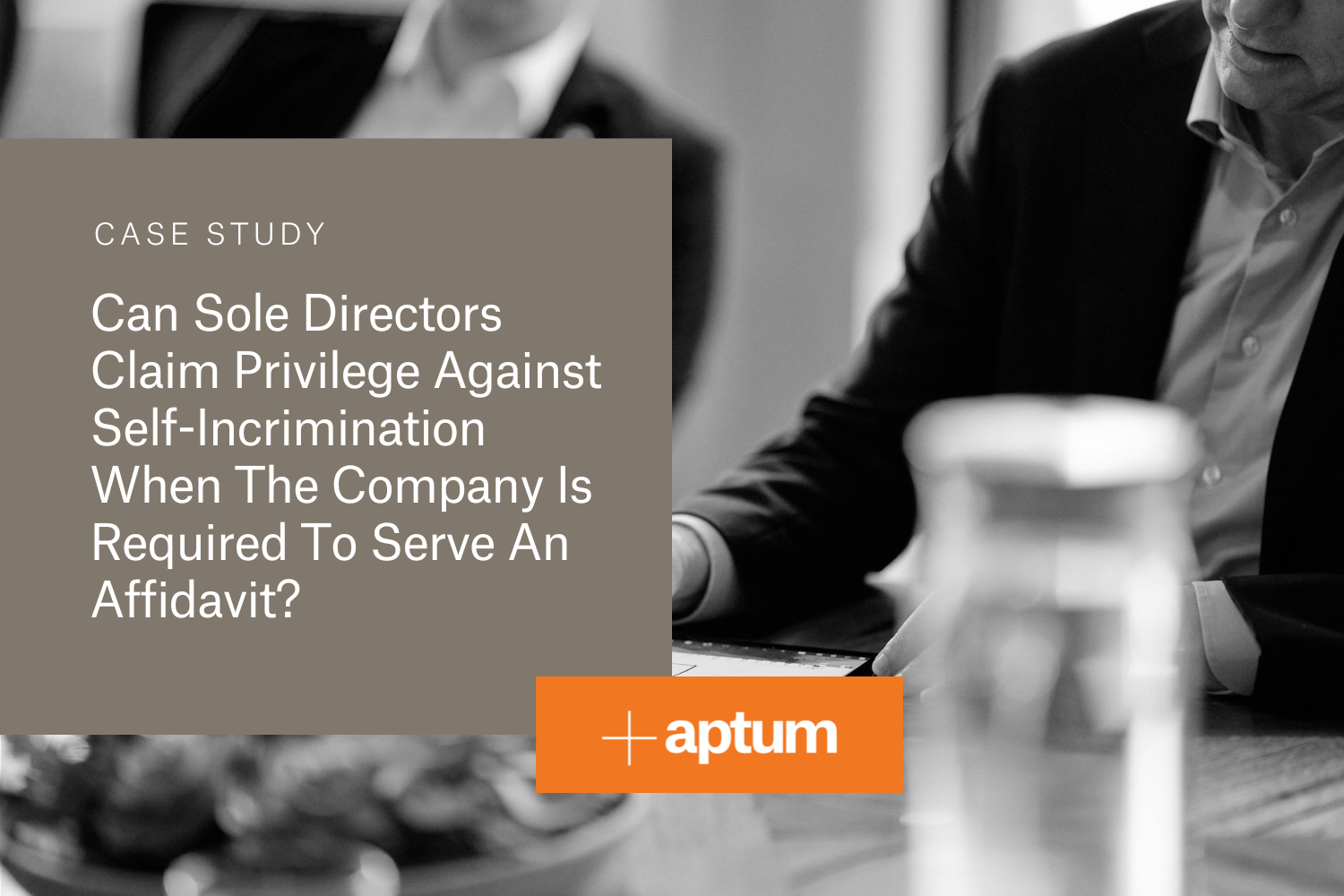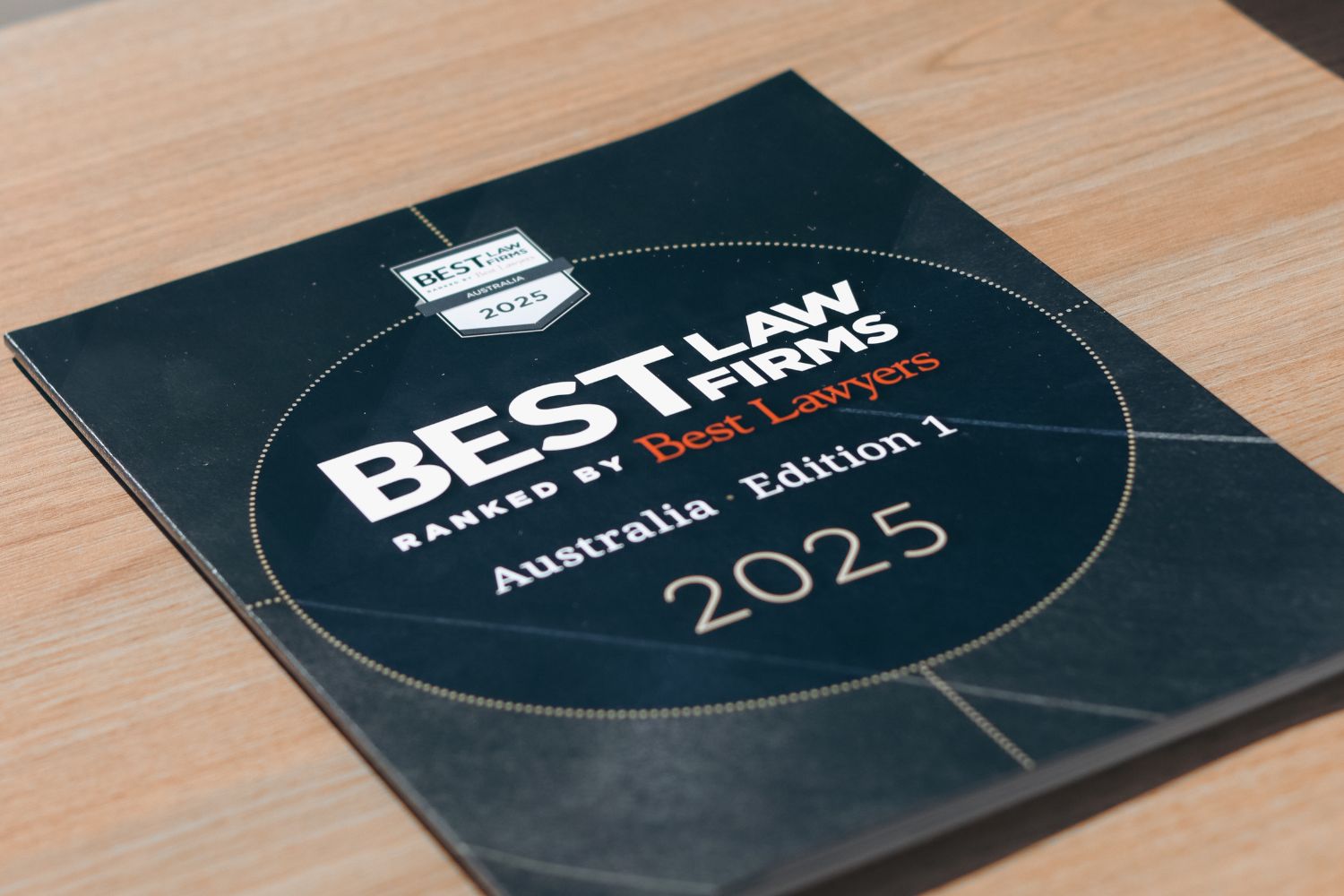As the sole director and shareholder of a Company, if your Company is ordered to serve an affidavit – a formal written statement to the court – as evidence in a proceeding, you may be responsible for supplying that information.
But if doing so could be self-incriminating, can you make a claim for privilege against self-incrimination?
According to a recent Federal Court judgement, the answer is no.
What happened?
In the matter, a Company – the defendant – was ordered to serve an affidavit identifying withdrawals/ transfers of funds from a bank account. Consequently, the Company filed an affidavit affirmed by its sole director on behalf of the Company which provided some, but not all, of the information relating to the withdrawals/ transfers.
Some of the transfers were not disclosed because the director sought to make a claim of privilege against self-incrimination.
The question: can privilege against self-incrimination apply to sole directors when the Company is required to serve an affidavit?
The claim for privilege in respect of self-incrimination lies in section 128 of the Evidence Act 1995 (Cth) (the Act). However, by reason of section 187 of the Act, this claim cannot be made for companies.
Section 187 states:
(1) This section applies if, under a law of the Commonwealth or in a proceeding in a federal court, a body corporate is required to:
(a) answer a question or give information; or
(b) produce a document or any other thing; or
(c) do any other act whatever.
(2) The body corporate is not entitled to refuse or fail to comply with the requirement on the ground that answering the question, giving the information, producing the document or other thing or doing that other act, as the case may be, might tend to incriminate the body or make the body liable to a penalty.”
In effect, a body corporate does not have grounds for refusing to provide information that may be incriminating.
However, since the affidavit in this matter was to be addressed by the Company, and the Company comprised only a sole director, it was argued that privilege should apply to the director personally, as no one else could provide the information.
In support, the director’s solicitor provided evidence that:
- the director is, and was during the relevant period, the sole member and sole director of the Company; and
- the Company did not employ anyone, and the director was responsible for all transfers out of the bank account during the relevant period.
The issues: source of information & risk of self-incrimination
The judge observed that the director and Company correctly identified that the Company, being a body corporate, could not make a claim of privilege against self-incrimination because s 187 of the Act applied.
Thus, it was necessary for the judge to consider whether compliance with the order was only possible if the director was exposed to the risk of self-incrimination.
This gave rise to two issues:
- Is the director the only source of the information?
- If yes, could the provision of the information expose the director to such a risk of self-incrimination?
The decision: sole directors are not the only source of company information
The director’s claim of privilege against self-incrimination was dismissed.
It was determined that another person could have made the affidavit for the Company, and the director was not the only source of information. The judge said, “I am not satisfied, on the basis of this evidence, that no-one other than the [director] could provide the requisite information on behalf of the [Company].”
For example, an agent of the Company such as an accountant or lawyer could have prepared the affidavit on the Company’s behalf.
Consequently, the Company was ordered to file and serve an additional affidavit within 7 days disclosing the entirety of the withdrawals/transfers as originally ordered.
Conclusion
If you are a sole director of a Company, and the Company is required to serve an affidavit that may reveal self-incriminating information, the privilege against it is unlikely to apply.
As affidavits are either deposed to under oath or affirmed, it is important to note that there are criminal consequences for making false statements in an affidavit.
Read the full judgement of Scottish Pacific Business Finance Pty Ltd v Qaqour, in the matter of Penny World Pty Ltd (receivers and managers appointed) (No 2) [2022] FCA 779 here.
Stay tuned for more from the Aptum leadership team, as we discuss and expand on legal issues businesses are facing.
Aptum are specialists in complex commercial and tax litigation. For clarity in the pathway to resolving your dispute, contact us today.




